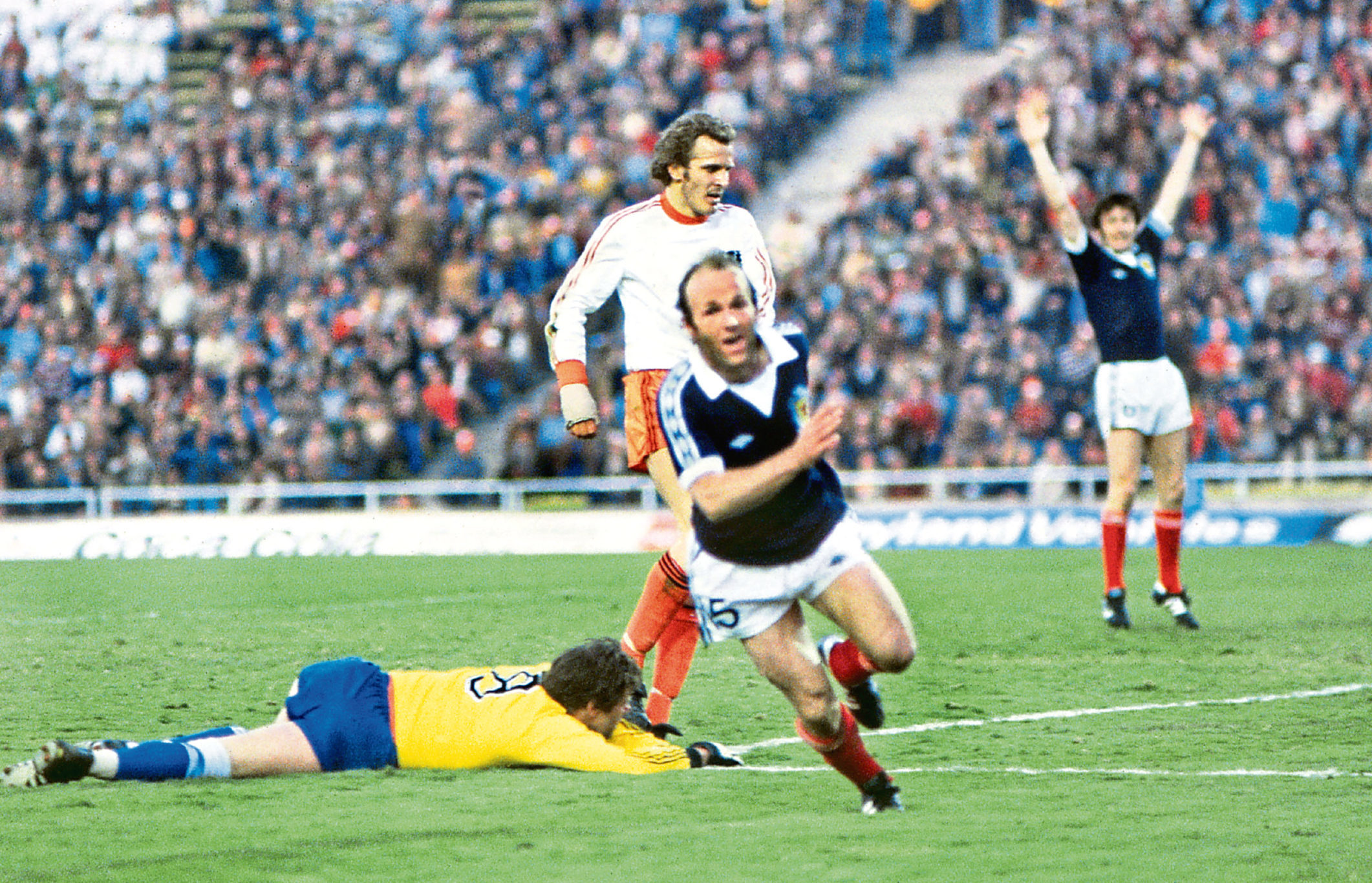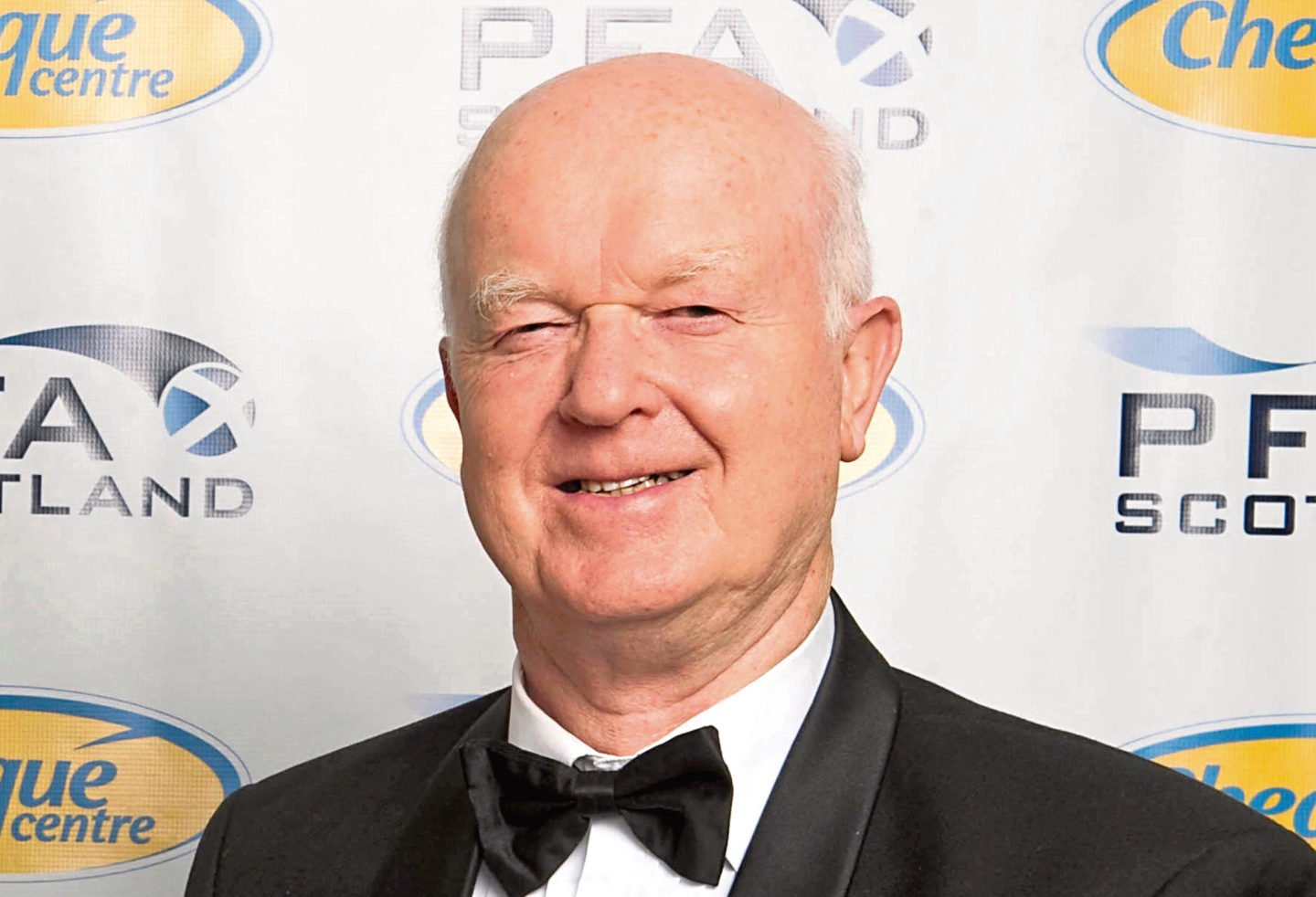
AS Russia 2018 continues, the Tartan Army can’t help but think back to better times, when the national team were regular guests at football’s biggest party.
Archie Macpherson, author of Adventures In The Golden Age, tells Murray Scougall the Honest Truth about Scotland’s World Cup exploits.
Why did you write the book?
I wanted to eliminate the belief that we were downtrodden in this period, when in actual fact it was a great success, getting to as many World Cups as we did.
It’s true that there were ups and downs, but it was still a great achievement and it was through terrible luck at times that we failed to qualify for the latter stages.
The book goes into incredible detail – did you keep a diary or notes of your trips?
The biggest aid for me was that I wasn’t just doing commentary, but also writing articles and scripted radio pieces, and I kept all of my notes from those.
I was also aided and abetted by the players I spoke to for the book, who told me not just about the games but also of the nocturnal affairs.
It was essential to have those players involved. I thought there might be some resistance about speaking, but there wasn’t.
Did you have any reservations about going into detail about some of the off-field events that happened?
I didn’t worry about that and I explain in the book that the quality of football we once had was mixed in with conflict, arguments and disputes.
There was also a naivety in those early days from all involved, from the broadcasters to the officials to the players to the support, as to what it was all about and how to cope with it.
We had a lot of experienced club players, but they didn’t have that international experience.
Some of those players couldn’t cope and some misbehaved, which tainted the whole squad. The likes of Sandy Jardine, Kenny Dalglish and Danny McGrain were impeccable professionals, but others weren’t quite.
It was a lasting impression that stuck with Scotland right through to 1986.
Are there particular moments when you think of what might have been?
1974, without a doubt. We were the only unbeaten team in the entire tournament, including the winners West Germany, who lost in the group stages. At the end of the final match against Yugoslavia we still had a chance depending on the Brazil-Zaire score, but it wasn’t to be.
On this day 40 years ago, Archie Gemmill scored THAT goal for Scotland
Your favourite memory?
Archie Gemmill’s goal against Holland in 1978 was something special. It wasn’t just the quality. It reminded me of a wee boy in the playground, hitting the back wall with the chalk outline of the goals.
It was something so basic in Scottish football, the wee forward jinking through.
An entire generation has never seen Scotland in a World Cup – is that likely to change any time soon?
It will be difficult. We’ve all been watching this World Cup and you see the teams’ organisation, strength and fitness. You look at a basic team like Iran – Scotland’s opposition in the most miserable game I’ve ever watched in the 1978 World Cup – and see how they’ve come on. They know how to defend.
I hate to sound so pessimistic, but we probably have a bit of a wait on our hands.
If and when it happens, will it be celebrated more than any other?
One of my grandsons is at Stirling University. He’s 18, and he phoned me just after Scotland scored against Slovenia in the qualifiers, at a time when we felt we might have a chance of reaching the play-offs.
I heard the celebrations in the background, from people who had never seen Scotland in a World Cup.
Afterwards, I felt as anguished as I had at the World Cups I’d been to, that my grandson and his friend thought “here we go”, and then it never happened.
But we certainly have not lost the sense of knowing how to celebrate.
Adventures In The Golden Age is out now from Black & White.

Enjoy the convenience of having The Sunday Post delivered as a digital ePaper straight to your smartphone, tablet or computer.
Subscribe for only £5.49 a month and enjoy all the benefits of the printed paper as a digital replica.
Subscribe